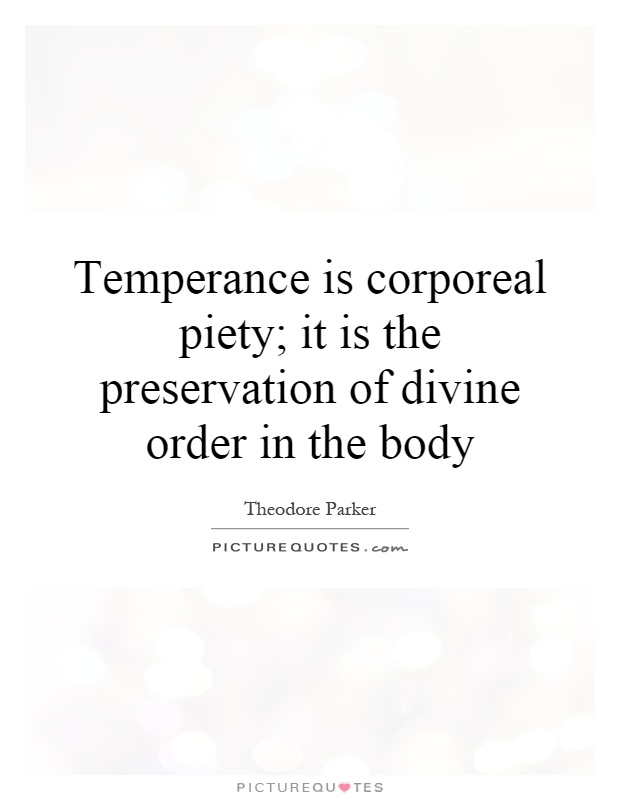Temperance is corporeal piety; it is the preservation of divine order in the body

Temperance is corporeal piety; it is the preservation of divine order in the body
Theodore Parker was a prominent American Transcendentalist and Unitarian minister who lived in the 19th century. He was known for his progressive views on social issues such as abolitionism, women's rights, and temperance. In his writings and speeches, Parker often emphasized the importance of living a virtuous and disciplined life, both in terms of personal conduct and social activism.One of the key principles that Parker espoused was the idea that temperance is a form of corporeal piety. In other words, he believed that practicing moderation and self-control in one's physical actions and habits was a way of honoring and respecting the divine order that governs the universe. For Parker, temperance was not just about abstaining from alcohol or other vices, but about living in harmony with the natural laws that govern the body and the world.
Parker saw the body as a sacred vessel that should be treated with reverence and care. He believed that indulging in excess or harmful behaviors was a violation of the divine order that governs the body and the soul. By practicing temperance, one could maintain the proper balance and harmony within themselves, and in doing so, honor the divine presence that resides within each individual.












 Friendship Quotes
Friendship Quotes Love Quotes
Love Quotes Life Quotes
Life Quotes Funny Quotes
Funny Quotes Motivational Quotes
Motivational Quotes Inspirational Quotes
Inspirational Quotes